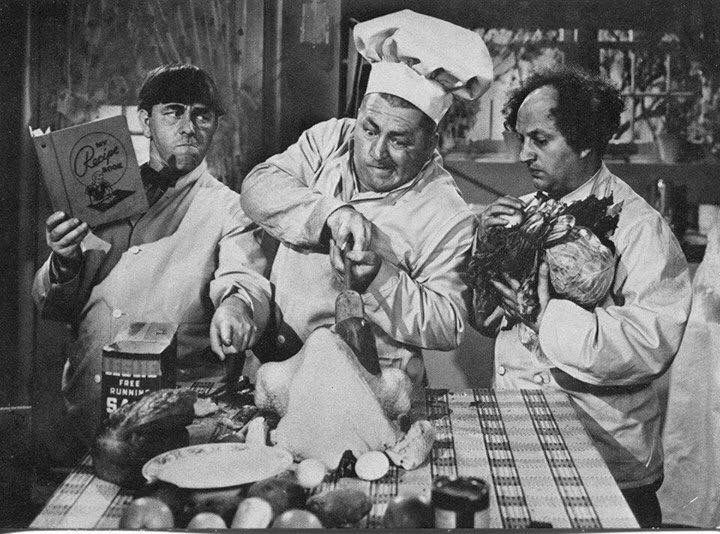|
On Sunday, October 25th, we re-entered the church building for our worship Service after conducting only on-line worship since mid-March. The Service went well. We are broadcasting the Service live via Zoom and integrating both the in person and online participants. All of the technology worked fine, but our technical difficulty arose with the recording. We are working on correcting all of these problems and hope to have us up and running for next Sunday's worship. In the meanwhile, here is a copy of Sunday's sermon and a video of the anthem presented by our Minister of Music and the choir. Thank you for your patience. Rev. Randy -------------------------------------- “May the words of my mouth and the meditation of our hearts be acceptable to you, O Lord, our rock and our redeemer.” (Ps 19:14) Last Sunday, as many of you know, we had some technical difficulties with our first Zoom broadcast from the church building. You could hear me, but I couldn’t hear you. It was frustrating for me, and also for Mark who put-in a lot of time to make it work. I think I now understand what Sharon feels when she says that I don’t hear her. She swears that she tells me things that I then swear I never heard. And it’s a little scary to know that she’s in charge of my mute button right now. Maybe her chance to get even. Sometimes though what’s called “not hearing” is more like “not understanding.” For example, we had a real hectic Thursday this past week. Sharon called from work and said she wouldn’t have time to prep the meal she had planned for our Instapot. She then hurriedly went on to an alternative, but what I thought I heard her say was, “Randy, why don’t you try to cook with the Instapot.” Well, without going into details, it didn’t work out so well. I didn’t blow up anything, so that’s a positive, but the meal wasn’t great. I realized how unfamiliar I am with cooking when one of the directions was “cut an onion roughly.” What does “roughly” mean? I had no idea so I was just mean to the onion as I cut it. Not hearing, can place what we think should be said, into what the other person is actually saying. Sharon knew better than have me cook dinner with some new contraption while trying to follow a new recipe, but what I thought I heard her say was, “I won’t be home in time why not give it a try.” This not-hearing and then compensating for it by imagining what the other person must have been trying to say is something I’d like to consider in the light of today’s Gospel. For the past several weeks we’ve been sharing Gospel stories that occur late in Jesus’ ministry. There has been a concerted effort to not-hear Jesus. The chief priests and the elders of the people were first mentioned. Then we met-up with the Pharisees and the Herodians. Next the Sadducees showed up. And today we encounter a lawyer. This kind of lawyer is trained in religious law. The Jewish people would try to take care of their disputes among themselves based on their religious law rather than turning to Roman courts. We talk about the 10 Commandments, but among those who took the time to count, they recorded 613 religious commandments, and the lawyer in today’s Gospel took the time to count. Lawyers made their living, knowing all of these laws and how to apply them. When they were in law school, they would hone their skills by arguing the merits of this or that particular law. This exercise is what the lawyer in today’s Gospel is trying to lure in Jesus with. I’m pretty sure the lawyer thought he could make the fool out of this Galilean carpenter when he asked Jesus which is the greatest law. So up to this point we’ve had the priests, the elders, the Pharisees, the Herodians, the Sadducees and the lawyers all coming out and showing that they’re not willing to hear Jesus, and to make it worse they keep trying to put their words in His mouth. It’s kind of like last Sunday’s technical difficulties and also my Instapot supper the other night. In the first example, I couldn’t hear you, and in the second, I heard what I wanted to hear. But Jesus will not not-be-heard. Jesus knows that there is little to no hope for dialogue, so He concentrates His message as much as possible to try and force it through their not-hearing. He begins His answer to the lawyer with a very traditional, “You shall love God with everything you’ve got.” The way I imagine it, at this point the lawyer opens his mouth and is ready to debate Jesus, but before he can get his first word out, Jesus says, “I’ve got a second commandment. You have to love each other too.” These two commandments our of the 613 Jesus calls the greatest commandment. We heard a lot about debate rules prior to this past Thursday’s presidential debate, well, Jesus just broke one of the debate rules here. Or… maybe He didn’t. Maybe Jesus was trying to get people to actually hear Him when they were trying so hard to not-hear Him. Jesus was making a last-ditch effort to make His gospel so concise that it couldn’t not-be-heard, that it couldn’t be imagined as anything but what He actually said. I think what surprised the lawyer, and I think what can surprise a lot of religious people today still, is that Jesus linked the command to love God and to love each other, and He bound them so tightly together that for Jesus they were not two separate commandments. They were really one. Sometimes still there are religious people who like to separate what they do for God from what they do for others. There are religious people still who worship with passion, but who will pass righteous judgment against others with glee. They love God, but they have a much harder time loving others, showing compassion and empathy for others. And if anything stands out about the life and message of Jesus, it is that for Him the two loves cannot be separated. So to everyone who refused to hear Him and would instead put their words in His mouth, Jesus says the one commandment is love God and love each other, or to make it even more concise, just love. Donna read for us from the closing chapter of the book of Deuteronomy. Moses had led the people of Israel from Egyptian slavery to the border of the Promised Land, but he could not take them into the Promised Land. As he stood on that mountaintop, I hope he was at peace. He did all that he could and now I hope he was able to trust that others would carry on in his place. I think the church links these two passages for us this Sunday so that we may think of Jesus toward the end of His life, giving us His greatest-commandment speech, and hoping that we will carry it forward in how we live as His followers. And when Jesus sharpens His gospel to a glinting, sharp point that can pierce through all of the efforts to not-hear Him, Jesus gives us but one commandment, really, but one word: love. The story is told that the last living disciple, John, would come to church every Sunday, and every Sunday the congregation would ask him to preach, and every Sunday John said the same words, “Love one another.” Then he would sit down. Finally someone in the church found the courage to ask this esteemed last-living disciple of Jesus why he never preached anything else, to which John replied, “When you’ve learned this lesson, we’ll move on.” Love is the simplest, but hardest part of being a Christian, and it’s also Christianity’s greatest gift. May Jesus share with us the grace needed to hear Him and to follow His single command to love. For this we pray in His name. Amen.
0 Comments
Leave a Reply. |
NewsFaith, love and chitchat. Categories
All
Archives
June 2024
Follow
|
|
SERVICE TIMES
Sunday 9:30-10:30am Children Sunday School 9:30-10:30am Nursery care available during worship DONATE Make a single or recurring contribution by clicking here |
FOLLOW
|





 RSS Feed
RSS Feed
